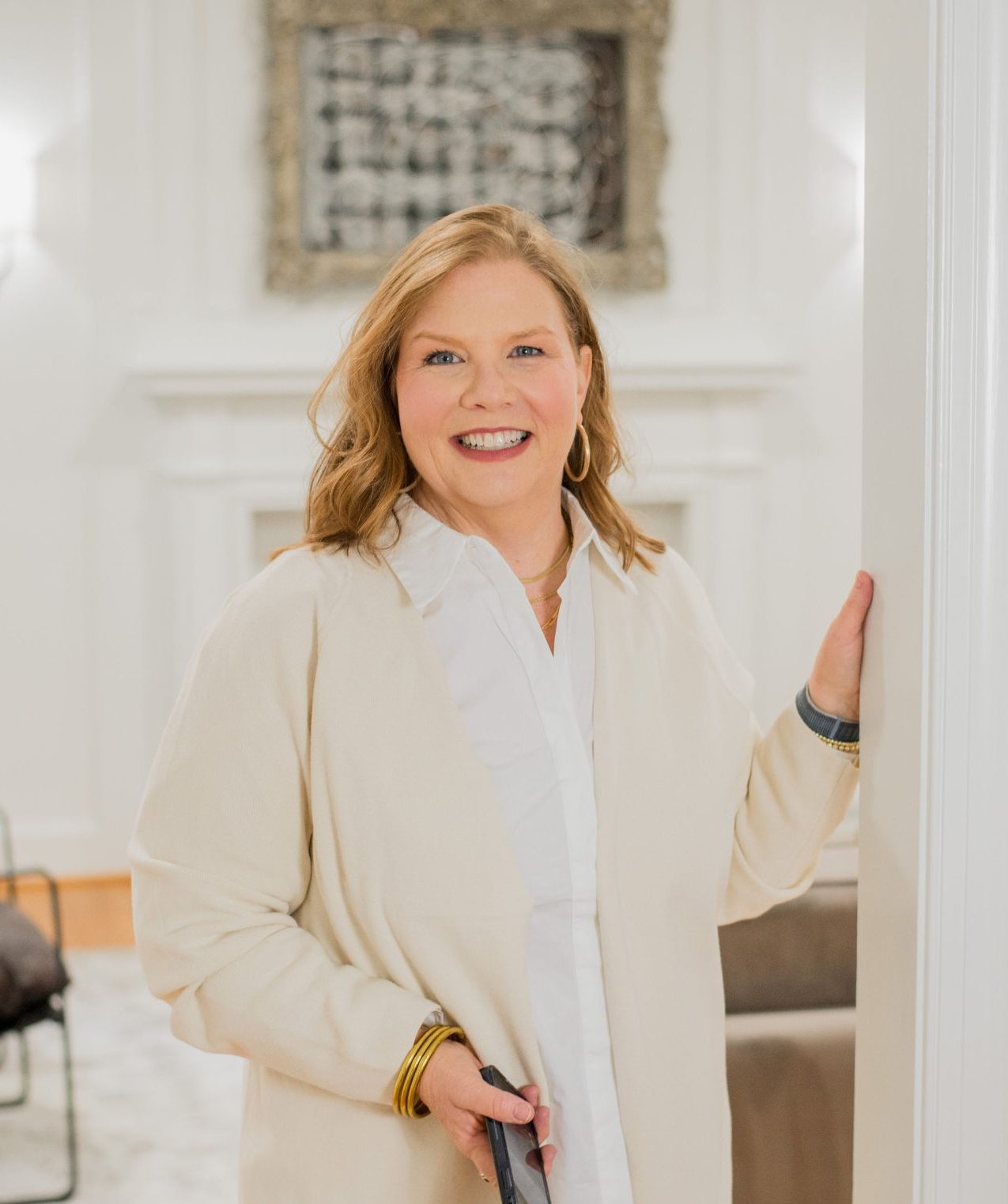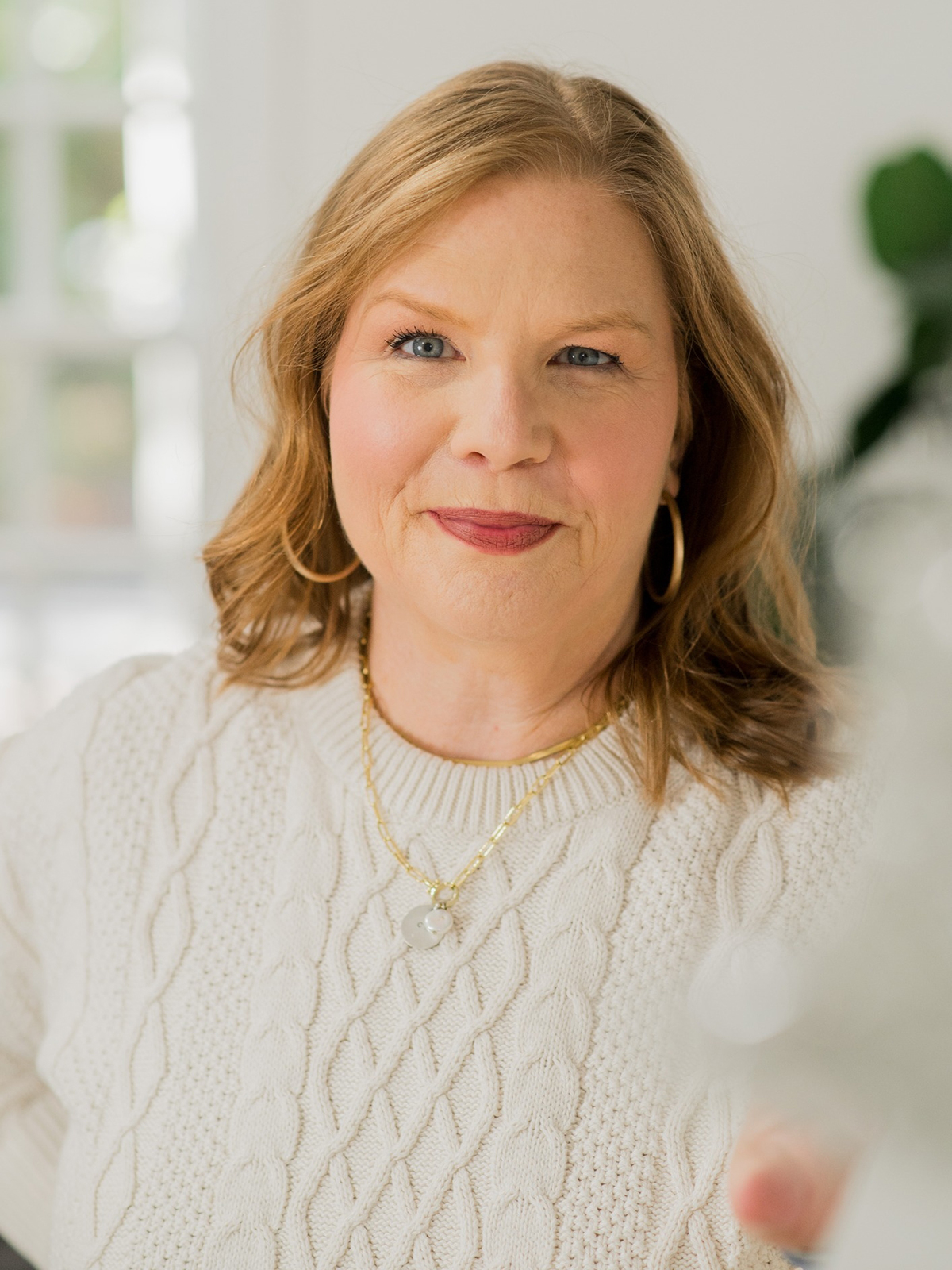Blog
Welcome and thanks for stopping by! My blog is filled with market updates and real estate info, but also Richmond area spots and favorites, fun stories and lots of recipes that I love (please try them!).
I love to share, and never gatekeep, so please bookmark my blog, check back often, and of course, don’t forget to subscribe to my newsletter!
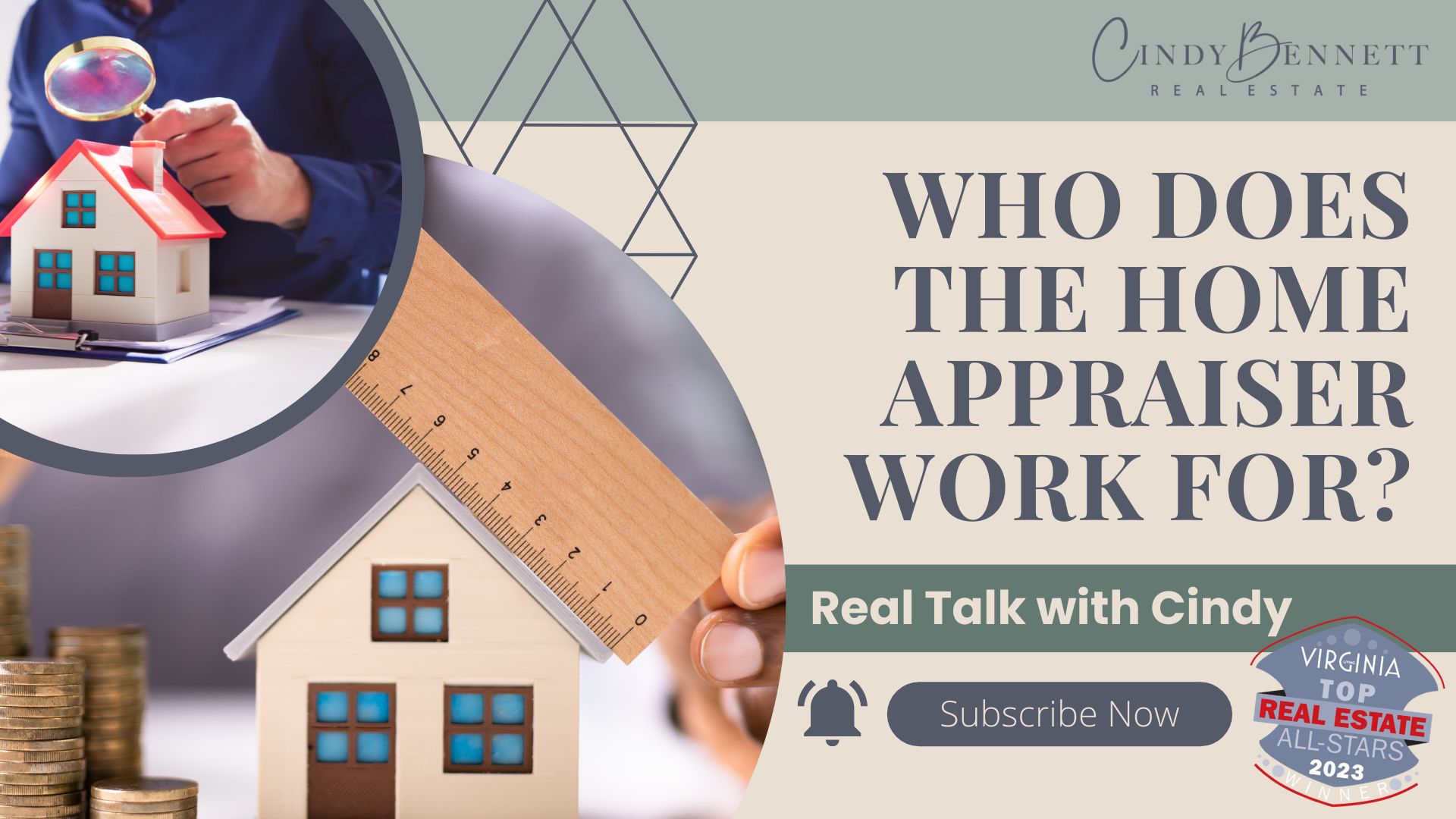
So we know what the appraiser does, who they are kind of, but who picks them? And okay, I can't pick them. But who does? And how does that affect me? Well, if you're the purchaser, you really don't have any input on the appraisal process or who gets to do your appraisal or anything like that. Ultimately the appraiser works for the lender. They are making sure that if the lender is going to loan you $400,000, that the property is actually worth $400,000. Now, maybe you're paying $450,000 for the home, but the lender is only going to be loaning you $400,000. The lender needs to make sure that whatever they're giving you is, if it's an 80% loan, if it's a 75% loan, whatever, that they are covered for the amount that they have invested in the property. In other words, the lender usually has a larger financial stake than you do in the property and they want to make sure that should you stop paying and they get stuck with that house, that they can actually sell it for what it's worth, not just what you think it's worth. Follow along for my whole series on appraisals and appraisers, to get a little better feel about what goes on in the appraisal process and why it matters to you whether you're a buyer or a seller.
Read more
So I've seen a couple of things in the past day on social media talking about getting your pre-approval letter, getting pre-qualified with a lender, and getting ready to buy a home. So I wanted to clarify a couple of things. One thing that I saw was in The Wall Street Journal, and it said that you as a buyer, get a real leg up if you have your pre-qualification or your pre-approval ready to go. Here in the Central Virginia, Richmond metro area, sure, we'll call it a leg up. I'm actually not going to call it a leg up and I'm going to call it just like literally where you have to start. If you are working with me, and we're looking at homes, it is not a purposeful use of our time to look at homes if you do not have a pre-qualification, and you're not ready to go, because we are 100% never going to submit an offer on a property that you like, without having a pre-approval with that contract, period, end of story. It's not going to be accepted, it's not going to be taken seriously, it's not going to be considered. So if you really like the house, you like the house enough to write a contract on it, you want to buy a house enough to go look at houses and potentially write a contract on them, get your pre approval. Talk to a lender. Get all of your ducks in a row so that when you do find that house that you love, you can move forward on it. It's not a leg up, it's just what you need to do. Another thing I saw was Barbara Corcoran mentioned that getting all of that pre-approval, getting all of the lender hoops to jump through, getting your income verified, getting your tax returns to the lender, all of that stuff makes you a cash buyer. It actually does not make you a cash buyer. It just makes you a viable buyer. So it's going to be hard to compete with cash with a loan, but it is impossible to compete with anybody if you don't have that pre-approval. So that's my little two cents. If you're seeing people say it's really great to have a pre-approval, it is necessary to have a pre-approval. It's not like an extra step. It is the first step. If you have questions about buying a home, especially if it's your first home and you don't really know where to start, but even if you've bought a whole bunch of homes and you know that you can get qualified or you know you've got somebody that you've worked with and like I'll just give Bob a call and he'll give me a letter, call Bob now, before you start looking. But give me a call if you don't know a lender. I know lots that are fantastic and I'd be happy to put you in touch with them and then we can get started on your home search.
Read more
Do you want to watch the game (or maybe just the commercials and snippets of Taylor) and love the energy of a crowd but don't want to be managing the food and friends at your place? I've got you. Here is a short list of some places you can watch the game, AND get great food, great drinks, all without having to cook or clean up! Where are YOU watching? Island Shrimp Co. Super Bowl Luau Head to Island Shrimp Co at Rocketts Landing for a full spread of island-inspired eats through halftime including Island BBQ Wings, Kalua Pork Sliders, ISCO's signature shrimp, veggie fried rice, and more! Each ticket comes with 2 Painkillers to get the party started with a taste of the islands. They're even hosting some giveaways at halftime! $45 (tickets required) Cabo Fish Taco Cabo Fish Taco is hosting a great watch party, with 7 screens, an All You Can Eat Taco Bar and drink specials all evening for $20. (tickets required) Always good for a game, snacks, and drinks...(just arrive early!) Address: 3022 W Broad St, Richmond, VA 23230 Wood & Iron Game Day Short Pump: 12288 W Broad St, Henrico, VA 23233 Midlothian: 11400 W. Huguenot Road, #109B, Midlothian, VA 23113 Scott's Addition: 1405 Roseneath Rd, Richmond, VA 23230 Pizza and Beer Richmond The Fan: 2553 W Cary St, Richmond, VA 23220 Hanover: 9325 Chamberlayne Rd, Mechanicsville, VA 23116 Gus' Bar and Grill Address: 2701 W. Broad St., RVA 23220 HomeTeam Grill Address: 1630 W. Main Street, Richmond, VA 23220
Read more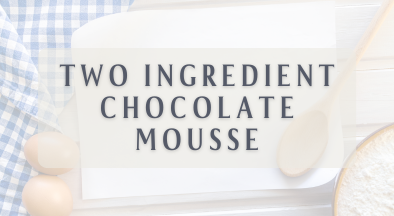
Two Ingredient Chocolate Mousse Ingredients 1 1/2 cups cold heavy cream, divided 1 cup good-quality chocolate chips or coarsely chopped chocolate (6 ounces) Garnish options: grated chocolate or crunchy toppings, such as chopped nuts, toffee, or brittle Directions Heat 1/2 cup of the cream in a microwave-safe bowl for 1 minute. Add 1 cup chocolate chips and stir to combine. Set the bowl aside for 5 minutes for the chocolate to melt. Whisk the chocolate and cream together until smooth. Set aside to cool while you whip the remaining cream. Place the remaining 1 cup cold cream in a medium bowl. Beat with an electric hand mixer or with a whisk by hand until soft peaks form. Transfer 1/2 cup to a small bowl and refrigerate for topping the finished mousse before serving. Continue whipping the remaining whipped cream until stiff peaks form. Fold the whipped cream into the cooled chocolate mixture with a large spatula in three additions. Work swiftly and gently and don’t stress if there are streaks of cream in the chocolate mousse. Divide the mixture between 4 ramekins or cocktail glasses. Refrigerate at least 1 hour and up to 4 before serving. Dollop with the reserved softly whipped cream and sprinkle with grated chocolate, chopped hazelnuts or toffee, or anything your heart desires!
Read more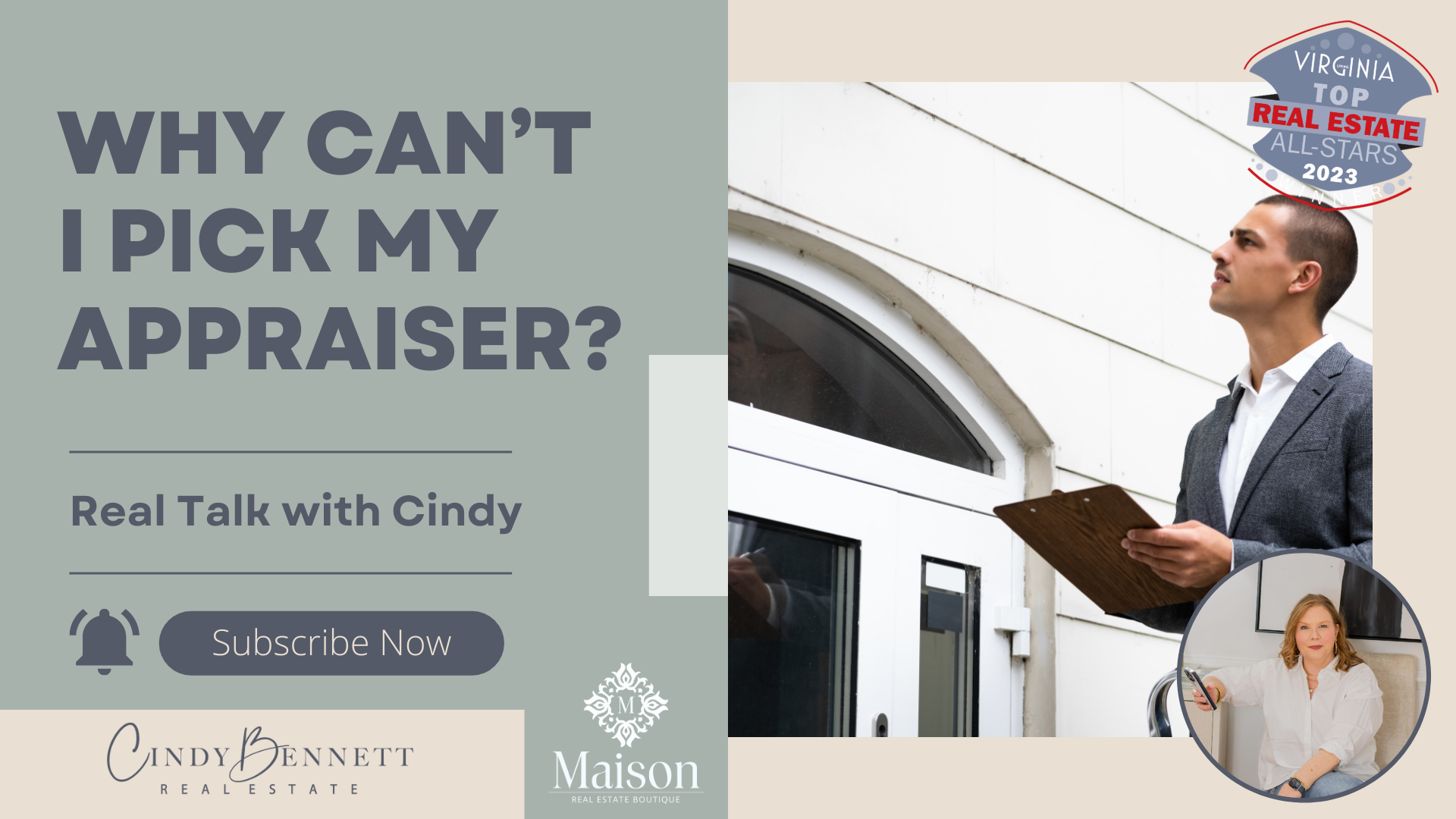
I may have mentioned before, back in the olden days before the mortgage crisis of 2007/2008, the appraisers were able to be chosen. So, maybe somebody had a specialty in the city of Richmond and that is the appraiser that everybody would call if they had a property in the city of Richmond, especially if it was a property that I don't know might be a little trickier to appraise, and the lender and or the agents were able to request a particular appraiser. That is no longer the case, because the appraisal companies, the appraisers themselves, work for the lender. The lenders have to have an unbiased opinion of the value. Somebody who is not necessarily chosen, they just get handed the name of that appraiser and when that happens, we do get a more unbiased opinion of value. But sometimes it can create a problem if an appraiser is not totally familiar with the nuances of a particular area or neighborhood. In most cases, it's fine because the data is what the data is right? But trickier appraisals can happen. And there are ways to deal with those too. So, follow along for my whole series on appraisals and get a little bit more information about what can happen, what the pitfalls are, why you want an appraisal or maybe you know that you're going to have an issue and you want to know what might happen and how to deal with those problems.
Read more
So one of the questions I get asked a lot is, "Is Richmond a good place to invest in real estate?". And I would say, yes. I'm probably a little biased, because I love it here, but yes, it is. And there are a few reasons for that. I hadn't really thought about the first one, until the other day when I was with clients who were from New Jersey, and they said, "Wow, your taxes are so low here, that it probably makes sense to buy real estate as an investment.", and I thought ding, you're absolutely right. There are lots of areas of the country where the property taxes are so high, that it pushes the rents beyond, you know, what they would be reasonably able to rent for, and makes it just not a worthwhile endeavor. It just wouldn't be. It wouldn't make sense financially. But in our area, because the taxes are relatively low compared to a lot of other municipalities, you can actually buy a place with a mortgage and include those taxes and your insurance and still have a little bit of positive income every month from that rental. But there are a couple of things that whether you're buying here or somewhere else, as a rental investment that I think it's really good to think of. The first thing you want to think about is, "What's your business plan? What's the business model that you want to use? Are you thinking of buying something and just have it pay for itself? Maybe you're buying it when your children are five, and you're going to keep it until they graduate high school, and that's going to be their college. So you're banking, really on the equity, and not really looking for a positive cash flow situation every month. So think about that, and what that looks like for you. The next thing you really want to think about is, "Do you have a little bit of extra cash, once you put the money down and do anything you need to do to get your rental up and running?" Do you have enough to cover any incidentals that might come along throughout the time that your renter's in there because remember, if you've got a tenant in place, you can't just say, I can't fix that right now, I'll wait until I have a little more cash. If the toilet is leaking, or something's literally not working, they have no heat, for example, you can't kick that can down the road, you will actually need a little bit of a buffer a little bit of a safety net to cover those sorts of repairs. And you will have those sorts of repairs guaranteed. Make sure too that you have a good application process in place. You are vetting your tenants well so that you don't end up having to completely repaint, or refinish/redo at the end of that lease term. So, unfortunately, this is where I get a little emotional with things like allowing pets, make sure that you know what you're in for if you do allow pets because they will oftentimes damage the property. And while many don't, many do, so having that little extra buffer or pet fee is going to make a big difference in what you have to do to the house when those tenants leave. Finally, once you get it rented, you have a tenant in place, you're getting ready to sign that lease, get a security deposit, make sure your lease is very clear on what happens there. Because inevitably, the time that you don't have a security deposit is the time that somebody skips out on their rent the last month, or does some damage that you are not prepared to cover when they move. So lots of things go into real estate investing, but it can be really lucrative and people always need a place to rent so everyone needs a home. I definitely think there's a need for it. If you have any other questions about real estate investing in the Richmond area, I'd love to talk to you and help you determine if it's the right thing for you and how you'd like to proceed. Just give me a call send me a message and let's get talking.
Read more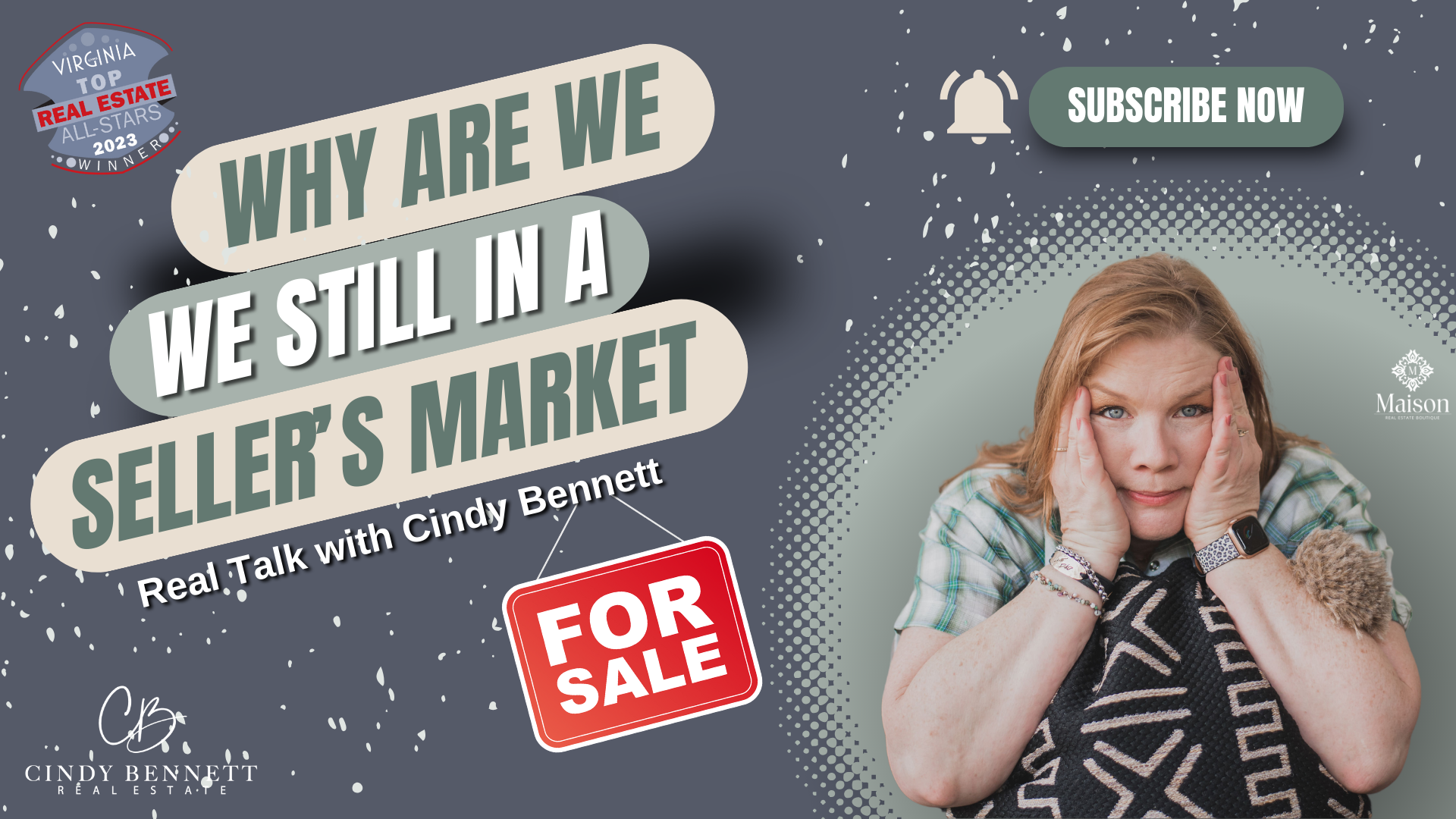
So we've talked a lot about whether it's a buyer's or seller's market and obviously all the data shows, and anecdotally, I can attest to the fact that it is still very much a seller's market here in central Virginia, in the metro Richmond area. But why? Why are we still in a seller's market? What is going on? And is it going to change? So a lot of buyers are out there thinking, I'm gonna wait, I'm gonna sit it out until it turns back into a buyers market. And I wouldn't really recommend that and there are a couple of reasons why. And they go back to the reasons why we are still in a seller's market. So one of the reasons why we are still in a seller's market, and we have not actually been in a buyer's market since 2013, or so, is throwing back to the mortgage crisis of '06 or '07, '08. When mortgages were crazy, everything kind of went kablooey. After lenders were giving people mortgages that probably shouldn't have gotten mortgages, and people didn't really have any skin in the game, so to speak. I think the lowest amount I had a buyer, during that time period, bring to closing was about $100. I think there were some people who brought $0 to closing and that just doesn't really give you a great incentive to pay things off. You don't have anything to lose if you walk away and just can't pay your mortgage. A lot of things changed after that period and put us in a position where a lot of builders went belly up. A lot of things just shifted in the whole industry. Buyers were sidelined. It was harder to get a mortgage. There were a whole lot of reasons, but one big piece of fallout that came from that was people stopped building. We just didn't have the construction that we had had up to that point and we just haven't caught up. So there are literally not as many housing units as the market needs nationwide. Everywhere you go. Almost anywhere, there are not enough units of housing. So that means rental homes, apartments, condos, townhomes, single-family homes, all that stuff. I have also seen during the course of my career that things have gotten a little different from the perspective of buyers. I think 15 or 20 years ago, buyers were more likely to come in and buy a fixer upper. I say all the time that with Pinterest, Instagram, HGTV, and all of these things showing great transformations, my natural thought would be that people would be more open to a fixer-upper and they would see the potential more because they've seen it on TV or Instagram or whatever. And it's almost the opposite. So it's a little counterintuitive to me that with the popularity of those things that buyers tend to walk in and see just a couple of things that might just be cosmetic, or just beyond cosmetic and they will walk out of a home. So the deals to be had in this market generally are the real fixer-uppers because a lot of people are just completely, no thank you, on those. They won't even go or they walk in and turn around and walk out. So there are a few reasons why we are still in a seller's market, but there are always deals to be had. If you're thinking of buying, there are always opportunities out there. So don't sit on the sidelines because you may be sitting for a long time. But if you have any questions about buying or thinking about a game plan to get you into a home and you think it's maybe unattainable, I'd love to talk to you because I bet you can actually make it happen.
Read more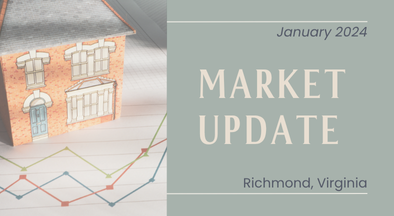
One of the questions that I get asked all the time in every season, at a party by clients, whatever, "Are we in a buyers market or seller's market?". If you look at real estate news across the country that answer varies greatly from location to location, region to region, but here in central Virginia in the Richmond metro area, we are still in a seller's market. Now, what does that mean? That means that a balanced market is basically six months' worth of inventory. That means that if we had no more homes come on the market, that we would have six months to sell through all of the inventory that's currently on the market. So if a balanced market where it's not preferring or leaning towards buyers not leaning towards sellers, a balanced market is six months' worth of inventory. We are currently still, here in January of 2024, with less than two months of inventory. If we had no more homes come on the market with the buyers that are currently in the market, it would be at a zero within two months, like all of the houses would be sold. That's going to continue to a greater or lesser degree throughout 2024. We will still find ourselves in a seller's market. But with rates coming down, there are a lot more opportunities for buyers, especially first-time buyers or buyers who are very dependent on those rates. So if you're thinking about buying a home, reach out, I'd love to talk to you, and help you navigate that process, whether it's your first home or your tenth. And if you're thinking of selling, yes, it is still a great time to sell and I'd love to talk to you about the best strategy to get your home on the market before the spring when there is still pretty little competition right now. So give me a call, send me a message, and let's set up a time to chat.
Read more
If you're thinking of buying or selling a home, one of the things that's going to affect you on either side is the appraisal. So I'm going to do a short chapter, series, number of episodes on appraisals and tackle some of those frequently, commonly asked questions or situations that come up in the appraisal process. First things first, what is an appraisal? An appraisal really is an opinion of value. It is the most objective opinion of value because it is made by an uninterested party, right? It's not what the seller thinks the property is worth. It's not what the buyer thinks the property is worth. Nor is it what the agent thinks the property is worth. It is really an opinion of value by a an educated appraiser who only does appraisals. They are not involved in the transaction and it's based on the comparable sales around the property. So, you cannot use a property that's 50 miles away. You cannot use a property that is unlike the subject property. But it is an opinion of value, so they're not always going to be exactly the same, but they have to use information to back them. If you're curious about how appraisals work, what goes into the appraisal process and how it can affect you. If you're a buyer or seller follow along for the whole series and I'm going to answer all the questions you can think of about appraisals.
Read more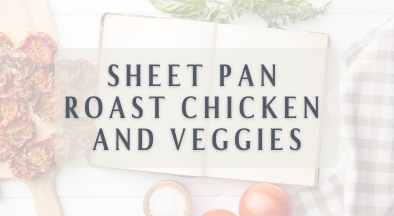
Serves 4 Ingredients 4 chicken breasts 3 medium carrots 1 pound brussels sprouts 4 medium yellow potatoes 1 medium red onion 3 tsp dried thyme 1 cup chicken broth 3 cloves garlic 1/3 cup sour cream 2 Tbs all-purpose flour 2 tsp garlic salt 2 Tbs butter 4 Tbs olive oil Salt and pepper to taste Wash and dry all produce. Preheat the oven to 450°F. Halve Brussels sprouts. Peel, then cut carrot into 1/4-inch rounds. Cut potatoes into 1/2-inch pieces. Roughly chop the red onion into 1/2-inch pieces. Peel, then mince or grate garlic. Add potatoes, Brussels sprouts, carrots, half the onions, half the garlic, half the thyme and 1 tbsp oil on a baking sheet. Season with pepper and half the garlic salt, then toss to combine. Arrange evenly into a single layer. Roast in the middle of the oven, stirring halfway through cooking, until golden-brown, 20-24 min. While veggies roast, pat chicken dry with paper towels. Add chicken, remaining thyme, remaining garlic salt and 1 tbsp oil to a large bowl. Season with pepper and toss to coat. Heat a large non-stick pan over medium-high heat. When hot, add 1 tbsp oil, then chicken. Cook, until golden-brown, 2-3 min per side. Remove the pan from heat. Transfer chicken to the baking sheet, on top of veggies. (NOTE: Give the veggies a stir before adding the chicken.) Roast in the middle of the oven, until chicken is cooked through, 10-12 min. While veggies and chicken roast, heat the pan from the chicken over medium heat. When hot, add 2 tbsp butter, remaining onions and remaining garlic. Cook, stirring often, until onions soften, 2-3 min. Sprinkle the flour over the onions and cook for 1-2 min. Add chicken broth. Cook, stirring often, until sauce slightly thickens, 4-5 min. Remove pan from heat, then stir in sour cream. Thinly slice chicken. Divide veggies and chicken between plates. Spoon pan sauce over top.
Read more
